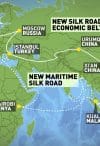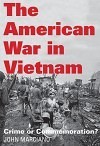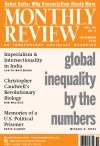Imperialism

China's Strategy for a New Global Financial Order
In late 2013, Chinese premier Xi Jinping announced a pair of new development and trade initiatives for China and the surrounding region: the “Silk Road Economic Belt” and the “Twenty-First-Century Maritime Silk Road,” together known as One Belt, One Road (OBOR). Along with the Asian Infrastructure Investment Bank (AIIB), the OBOR policies represent an ambitious spatial expansion of Chinese state capitalism, driven by an excess of industrial production capacity, as well as by emerging financial capital interests. The Chinese government has publicly stressed the lessons of the 1930s overcapacity crisis in the West that precipitated the Second World War, and promoted these new initiatives in the name of “peaceful development.” Nevertheless, the turn to OBOR suggests a regional scenario broadly similar to that in Europe between the end of the nineteenth century and the years before the First World War, when strong nations jostled one another for industrial and military dominance. | more…

Or, A Woman Connects Oppressions
Alice Walker is a Pulitzer Prize-winning novelist, poet, and activist. Her most recent book is
The World Will Follow Joy (New Press, 2013). This article was originally a speech delivered at a Peace for Cuba Rally on February 1, 1992, and first published in
MR in June 1994. Walker’s words remain as relevant today as when they were first spoken.

Since announcing its foreign policy “pivot to Asia” shortly after the election of Barack Obama, the United States has made extensive use of its institutional and discursive power to encourage denationalization among developing countries whose economies chiefly rely on manufacturing and trade—part of its global strategic goal of expanding the hegemony of finance capital at the lowest possible cost. The development of the Trans-Pacific Partnership (TTP) is a case in point. This article analyzes the TPP’s strategy in targeting China, pointing out that the TPP is a battle for the terms of economic development and discourse in the twenty-first century, as well as an illustration of the ideology of technocracy and soft power. Lastly, we criticize the TPP’s erosion of economic sovereignty, which would effectively relegate the economies of developing countries to a form of semi-colonial extraterritoriality. | more…

In early 1970, Vice President Spiro Agnew had this to say about the so-called ’60s Generation: “As for these deserters, malcontents, radicals, incendiaries, the civil and the uncivil disobedients among our youth, SDS, PLP, Weathermen I and Weathermen II, the revolutionary action movement, the Black United Front, Yippies, Hippies, Yahoos, Black Panthers, Lions, and Tigers alike—I would swap the whole damn zoo for a single platoon of the kind of young Americans I saw in Vietnam.” This is a fascinating statement for multiple reasons and on multiple levels. To begin with, a single platoon of the kind of young Americans he saw in Vietnam went into a village we remember as My Lai and murdered 407 unarmed men, women, and children. On the same day, in the nearby village of My Khe, another unit of the same division murdered an estimated 97 additional Vietnamese civilians. While I personally did not participate in or witness killing on that scale, I and my fellow Marines routinely killed, maimed, and abused Vietnamese on a near-daily basis, destroying homes, fields, crops, and livestock with every weapon available to us, from rifles and grenades to heavy artillery and napalm.… It is no wonder, it turns out, that Agnew should be so fond of “the kind of young Americans” he saw in Vietnam, since he himself turned out to be a criminal who was forced to resign from his office in public disgrace. | more…

The Vietnam War was an example of imperial aggression.… Imperialism ultimately enriches the home country’s dominant class. The process involves “unspeakable repression and state terror,” and must rely repeatedly “upon armed coercion and repression.” The ultimate aim of modern U.S. imperialism is “to make the world safe” for multinational corporations.… U.S. imperial actions in Vietnam and elsewhere are often described as reflecting “national interests,” “national security,” or “national defense.” Endless U.S. wars and regime changes, however, actually represent the class interests of the powerful who own and govern the country. Noam Chomsky argues that if one wishes to understand imperial wars, therefore, “it is a good idea to begin by investigating the domestic social structure. Who sets foreign policy? What interest do these people represent? What is the domestic source of their power?” | more…

David Vine, Base Nation: How U.S. Military Bases Abroad Harm America and the World (New York: Metropolitan, 2015), 418 pages, $35.00, hardcover.
The United States maintains about 800 military installations around the world, and the number is growing, despite partial withdrawals of troops from Iraq and Afghanistan and scaling back of major European bases. The continued expansion…has come mainly through a series of smaller “lily pad” installations, originally proposed by Defense Secretary Donald Rumsfeld, that are now being built in Africa, Eastern and Central Europe, Latin America, the Middle East, and beyond.… [David] Vine, a professor of anthropology at American University [and author of Base Nation], visited more than sixty current or former bases in twelve countries and territories. Although scholars such as Chalmers Johnson, Cynthia Enloe, and Catherine Lutz, as well as contributors to Monthly Review, have for decades sounded the alarm about the ever-expanding global network of U.S. military bases, Vine’s new study provides a comprehensive update, persuasively documenting the ways that “far from making the world a safer place, U.S. bases overseas can actually make war more likely and America less secure.” | more…

U.S. presidential elections, if nothing else, throw considerable light on the ideology and imperatives of the system. This is particularly the case with respect to imperialism, where one sees signs of a declining and increasingly desperate U.S. empire. Hillary Clinton has been calling for a no-fly zone in Syria (which would include Russian planes!), thereby threatening a confrontation with Russia on a level not seen since the Cuban Missile Crisis.… Trump, for his part, while appearing to suggest a kind of détente with Russia, is ready to intervene directly and massively in Iraq against the Islamic State (ISIS, ISIL, Daesh), including the use of ground troops. He supports the extension of torture and the slaughter of whole families of suspected terrorists. He claims that he would raise Israel from being a second-level power…. In short, the presidential nominees for the two major political parties are each posturing over who is the most aggressive and bellicose upholder of U.S. militarism and imperialism—and in ways that threaten further escalation of war in the Middle East and in opposition to Russia. | more…

The Dialectical Science of Christopher Caudwell
Next year will mark the eightieth anniversary of the Battle of Jarama.… In February 1937, eleven thousand Republicans…fought and died defending Madrid against Francisco Franco’s fascist incursion. At this point in Spain’s Civil War, the country was split evenly between west and east by rebel Nationalist and Republican forces. An earlier direct assault on Madrid had been repulsed. Republican troops subsequently consolidated their defenses along the Manzanares River. An assault through Madrid’s southern barrios would have cost Franco’s forces dearly. General Emilio Mora’s men north of the city in the meantime were held in check by Popular Front forces in the Sierra de Guadarrama.… The Nationalists turned to cutting off Madrid from the Republic’s provisional capital. They planned to march south before swinging north and capturing the road to Valencia. In early February, Franco ordered 40,000 of his battle-hardened Moroccan troops and an Italian unit provided by Mussolini to attack. The forces crossed the Jarama River on February 11. Republican General José Miaja countered the thrust with three battalions of the XV International Brigade, including the Dimitrov Battalion and the British Battalion. | more…
Caste and Gender in India under the Sign of Monopoly-Finance Capital
The overarching goal of this article is to explain how the relations between capitalist imperialism, primary accumulation—often misleadingly called “primitive accumulation”—and intersectionality operate in contemporary global political economy. From many recent studies, it is clear that certain populations are more vulnerable to processes of primary accumulation than others, and that many people in the global South now experience the dispossession and displacement caused by primary accumulation without any subsequent incorporation into waged work. Understanding how ethnicity, gender, and class intersect within contemporary patterns of global accumulation is important in order to develop clear political strategies against ongoing dispossessions.… To do so, imperialism, primary accumulation, and intersectionality all need to be rethought, especially in relation to each other. | more…

“We will fight from one generation to the next.” In the 1960s and 1970s we anti-imperialists in the U.S. were inspired not only by that slogan from Vietnam but even more by how they lived it with their 2000-year history of defeating a series of mighty invaders. At the same time we felt that we just might be on the cusp of world revolution in our lifetimes. Vietnam’s ability to stand up to and eventually defeat the most lethal military machine in world history was the spearhead. Dozens of revolutionary national liberation struggles were sweeping what was then called the “Third World,” today referred to as the “global South.” There was a strategy to win, as articulated by Che Guevara: to overextend and defeat the powerful imperial beast by creating “two, three, many Vietnams.” A range of radical and even revolutionary movements erupted within the U.S. and also in Europe and Japan.… Tragically, the revolutionary potential that felt so palpable then has not been realized.… Today, fighting from one generation to the next takes on new relevance and intense urgency. | more…
The political chaos that has recently dominated the scene in the Middle East is expressed, among other ways, by the violent resurgence of the Kurdish question. How can we analyze, in these new conditions, the scope of the claims of the Kurds—autonomy, independence, unity? And can we deduce from analysis that this claim must be supported by all democratic and progressive forces, in the region and in the world?… Debates on the subject produce great confusion. This is because most contemporary actors and observers rally around a non-historical vision of this and related issues.… I will offer a counterpoint to this transhistorical vision of social issues and “rights,” through which the social movements of the past and present express their demands. In particular, I will attribute paramount importance to the divide that separates the thriving of the modern capitalist world from past worlds. | more…
Marge Piercy is the author of nineteen books of poetry, most recently Made in Detroit (Knopf, 2015). Her first short story collection, The Cost of Lunch, Etc., was published in 2014 by PM Press. | more…








